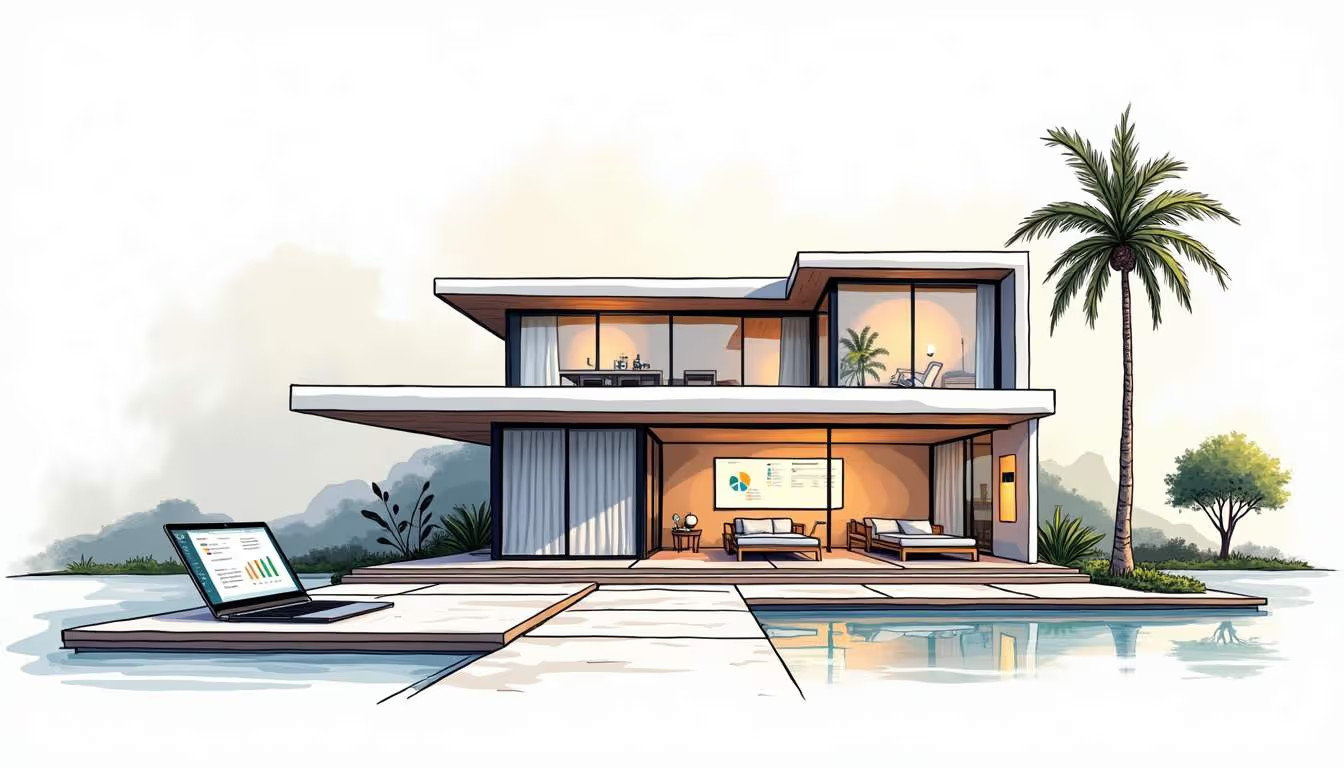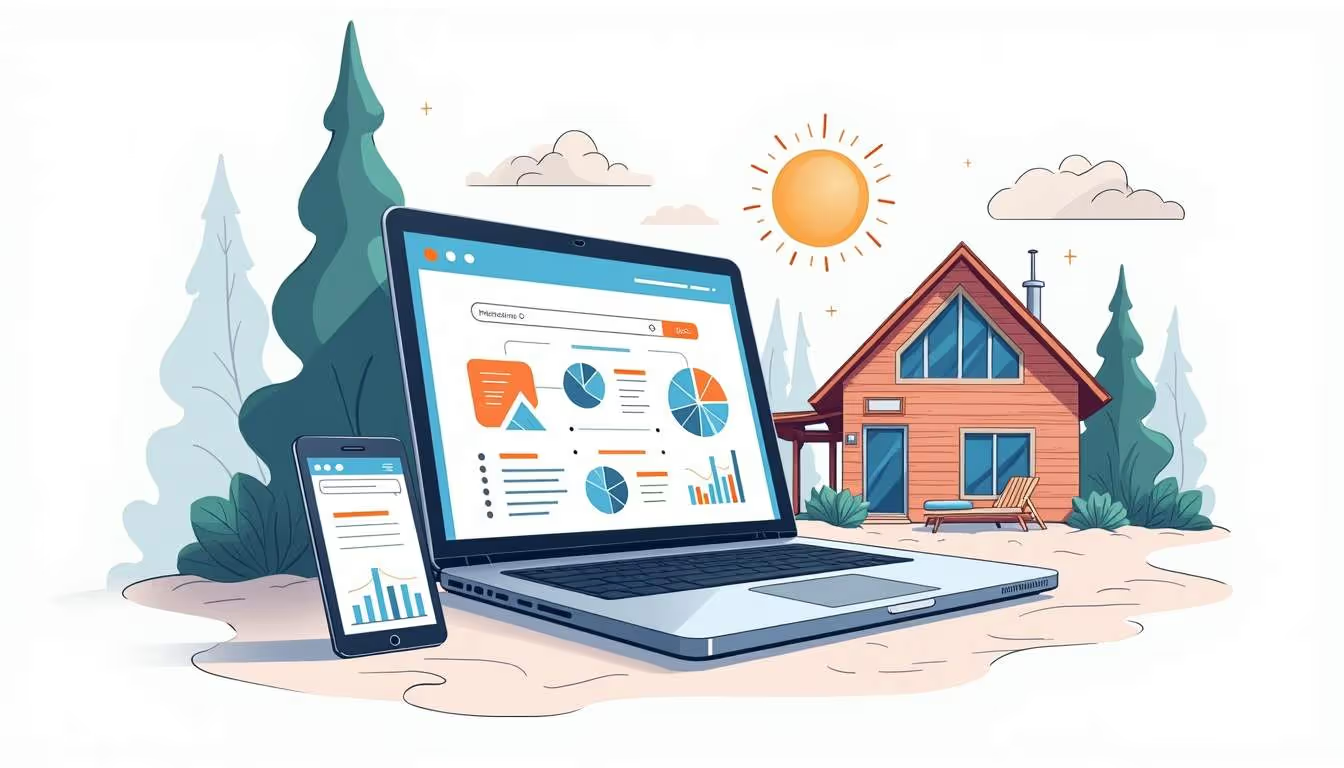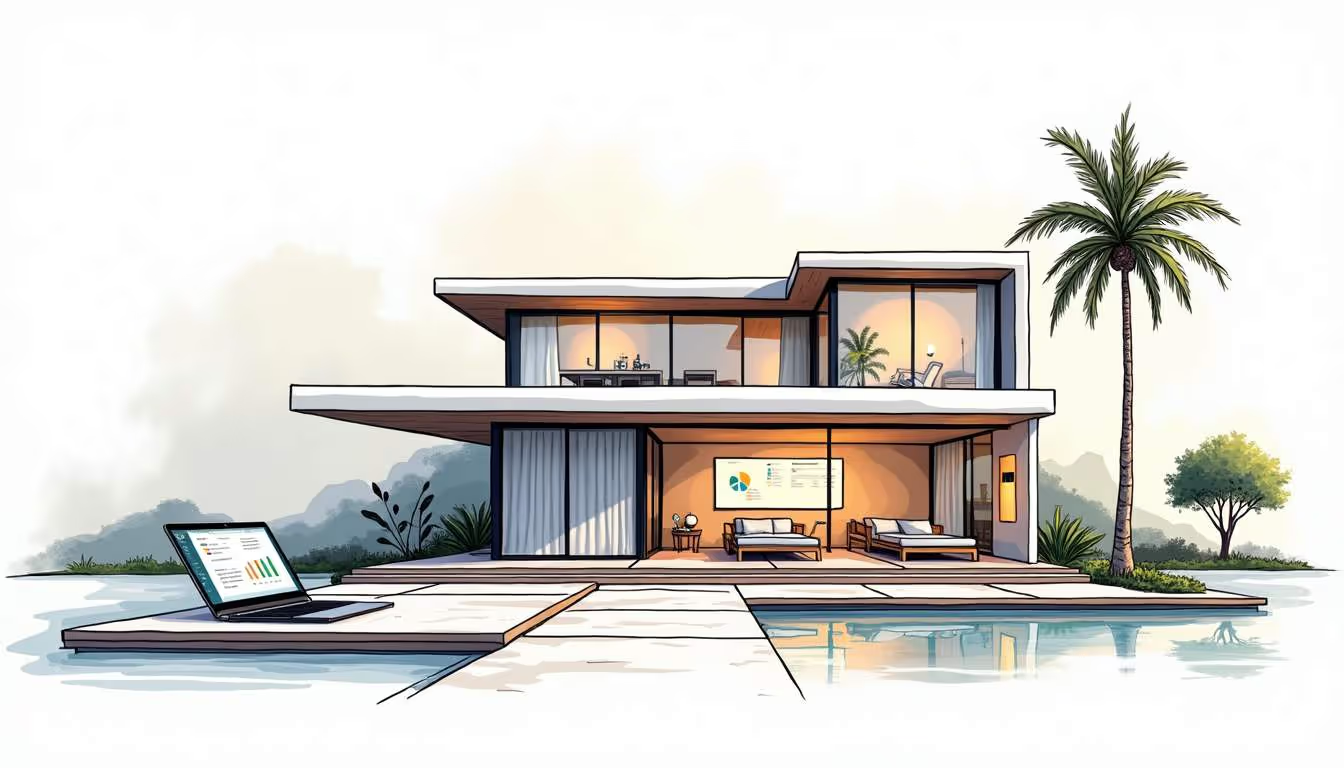Top Vacation Home Management Software Solutions for 2025
As the vacation rental industry continues to evolve rapidly, property managers and owners are increasingly relying on advanced software solutions to streamline operations, enhance guest experiences, and maximize revenue. The global vacation rental software market, valued at $1.5 billion in 2024, is set to more than double by 2033, reaching $3.2 billion with a robust compound annual growth rate (CAGR) of 9.2% from 2026 to 2033. This growth is fueled by technological innovations, including AI-driven pricing, automation, and Internet of Things (IoT) integrations, which are reshaping how vacation homes are managed worldwide.
For vacation rental businesses aiming to stay competitive in 2025, selecting the right management software is critical. This article explores the top vacation home management software solutions, highlighting key features, market trends, and technological advancements that are defining the industry.
Understanding the Vacation Home Management Software Landscape
Vacation home management software serves as the backbone for property managers, enabling them to handle bookings, guest communication, pricing, and maintenance efficiently. The market is diverse, with solutions ranging from cloud-based platforms to AI-powered tools and IoT-integrated systems.
Cloud-based solutions dominate the market, accounting for over 60% of the market share in 2024. Their scalability and cost-efficiency make them particularly attractive to small and medium-sized businesses and boutique property managers. These platforms offer seamless updates, remote access, and integration capabilities that traditional software often lacks. Additionally, the ability to access data from anywhere allows property managers to stay connected with their operations, whether they are on-site or traveling. This flexibility is essential in a fast-paced industry where timely decisions can significantly impact guest satisfaction and revenue.
Moreover, the integration of AI and automation is transforming operational workflows. AI-powered pricing algorithms dynamically adjust rental rates based on demand, competition, and seasonal trends, helping property managers optimize revenue without manual intervention. Automation tools also streamline guest communication, inventory management, and task scheduling, freeing up valuable time for managers to focus on strategic growth. For instance, automated messaging systems can send personalized check-in instructions or welcome messages, enhancing the guest experience while reducing the workload on staff. Furthermore, predictive analytics can provide insights into future booking trends, allowing property managers to proactively adjust their marketing strategies and operational plans.
As the industry evolves, the rise of IoT (Internet of Things) technology is also making waves in vacation home management. Smart home devices, such as smart locks and thermostats, not only improve security but also enhance the guest experience by allowing for keyless entry and personalized climate control. These innovations can lead to higher guest satisfaction and repeat bookings, as properties equipped with smart technology often stand out in a competitive market. Additionally, IoT devices can provide real-time monitoring of property conditions, alerting managers to maintenance issues before they escalate, thereby preserving the property’s value and ensuring a seamless guest experience.
Key Features Driving Software Adoption in 2025
Multi-Channel Distribution
In 2024, vacation rental companies managing between 51 and 250 properties used an average of 2.6 Online Travel Agency (OTA) platforms to distribute their listings. This multi-channel approach is essential for maximizing visibility and bookings. Leading software solutions now offer centralized dashboards that synchronize calendars, rates, and availability across multiple OTAs, eliminating double bookings and reducing administrative overhead. Furthermore, the integration of analytics tools within these platforms allows property managers to assess the performance of each channel, enabling them to make data-driven decisions on where to allocate their marketing efforts and resources most effectively.

AI-Powered Pricing and Revenue Management
Dynamic pricing engines are becoming a standard feature in top-tier vacation rental software. These AI-driven tools analyze market data, competitor pricing, local events, and historical trends to recommend optimal rates in real-time. This capability not only boosts profitability but also ensures competitive positioning in fluctuating markets. Additionally, some advanced systems incorporate machine learning algorithms that continuously refine pricing strategies based on guest behavior and booking patterns, allowing property managers to stay ahead of market trends and maximize revenue opportunities throughout the year.
Guest Experience Automation
Enhancing guest satisfaction is a priority for vacation rental operators. Modern software platforms automate communication workflows, from booking confirmations and check-in instructions to post-stay feedback requests. Personalized messaging and timely responses improve guest engagement and encourage repeat bookings. Beyond basic communication, these platforms often include features such as automated upselling of services—like late check-outs or local experiences—which not only enhance the guest experience but also provide additional revenue streams for property managers.
IoT and Smart Lock Integration
In 2024, adoption of smart lock and IoT device connectivity increased by nearly 30% among urban property managers. Integration with smart home devices allows for keyless entry, energy management, and remote monitoring, enhancing security and convenience for both guests and managers. Software solutions that support IoT integration provide a competitive edge by enabling seamless smart home management within a single platform. Moreover, the data collected from these IoT devices can be leveraged to analyze guest preferences and behaviors, allowing property managers to tailor their offerings and improve operational efficiency.
Mobile Management Apps
Mobile apps empower property managers to oversee operations on the go. From managing bookings to coordinating maintenance tasks, mobile solutions offer flexibility and real-time updates, which are crucial for managing multiple properties efficiently. These applications also often include features for tracking guest interactions and feedback, enabling managers to respond quickly to any issues that arise. Furthermore, with the rise of remote work, many property managers are finding that mobile management apps facilitate better work-life balance, allowing them to maintain oversight of their properties while enjoying the freedom to work from anywhere.
Top Vacation Home Management Software Solutions for 2025
Based on current industry trends, technological advancements, and user needs, the following software platforms stand out as leaders in vacation home management for 2025.

Emerging Trends Shaping Vacation Rental Software in 2025
Beyond individual software features, several broader trends are influencing the vacation rental software market and shaping the future of property management.

Shift to Cloud-Native Platforms
The migration to cloud-native platforms is accelerating, driven by the need for scalability, remote access, and seamless updates. Cloud solutions reduce upfront costs and allow property managers to adapt quickly to changing market conditions without the burden of managing on-premises infrastructure.
Enhanced Data Analytics and AI Insights
Data-driven decision-making is becoming a cornerstone of successful vacation rental management. Advanced analytics provide insights into booking patterns, guest preferences, and market trends. AI-powered tools not only automate routine tasks but also offer predictive analytics to forecast demand and optimize inventory allocation.
Integration of Smart Home Technologies
The rise in smart lock and IoT device adoption reflects a broader push towards connected homes. These technologies improve security, energy efficiency, and guest convenience. Vacation rental software that seamlessly integrates with smart devices enables property managers to offer superior guest experiences while reducing operational costs.
Focus on Guest-Centric Automation
Automation is shifting from purely operational functions to enhancing the guest journey. Personalized communication, automated check-in/check-out processes, and real-time support are becoming standard expectations. Software platforms that prioritize guest-centric automation help build brand loyalty and increase repeat bookings.
How to Choose the Right Vacation Home Management Software
Selecting the ideal software solution depends on several factors, including portfolio size, budget, and specific business needs. Here are key considerations for property managers evaluating options in 2025:
- Scalability: Choose a platform that can grow with your portfolio, whether you manage a handful of properties or hundreds.
- Channel Management: Ensure the software supports integration with multiple OTAs to maximize exposure.
- Pricing Tools: Look for AI-driven dynamic pricing engines that optimize revenue without manual effort.
- Automation Capabilities: Prioritize solutions that automate guest communication, task management, and maintenance scheduling.
- IoT Integration: If managing urban or tech-savvy properties, select software that supports smart locks and other connected devices.
- User Experience: Evaluate the ease of use, mobile app availability, and customer support quality.
Conclusion
The vacation rental software market is undergoing significant transformation, driven by technological innovation and evolving industry demands. With the market projected to reach $3.2 billion by 2033, property managers who embrace advanced software solutions will be better positioned to optimize operations, enhance guest experiences, and drive profitability.
In 2025, leading vacation home management software platforms will continue to integrate AI, automation, and IoT technologies, offering scalable, cloud-based solutions tailored to diverse business needs. By carefully assessing features such as multi-channel distribution, dynamic pricing, guest automation, and smart home integration, property managers can select the tools that best support their growth and success in the competitive vacation rental landscape.








